Read more about Electrospray ionization emitters, RAS proteins for oncology research, MagReSyn NTA beads etc.
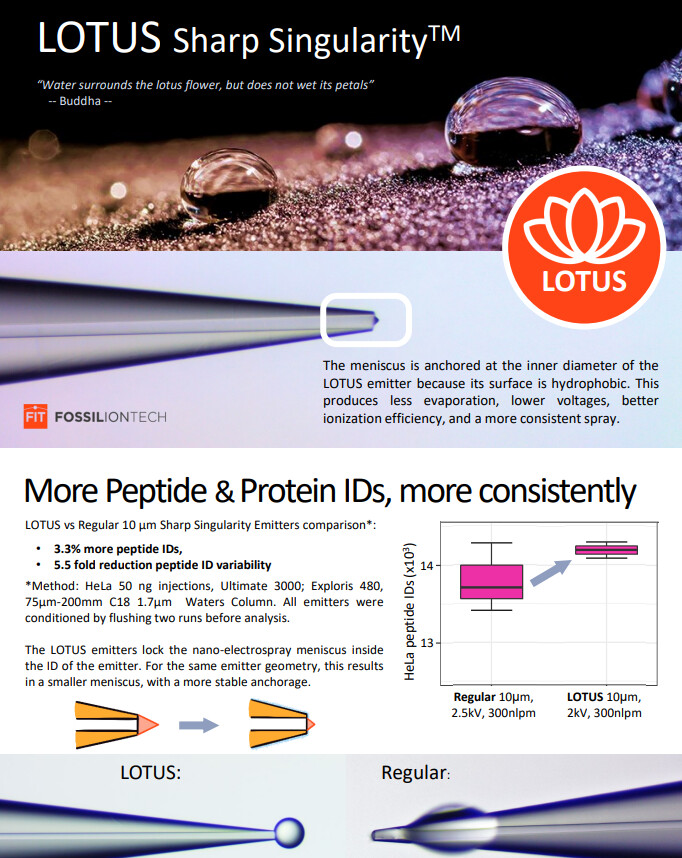

Fossiliontech have developed accurate electrospray ionization emitters. Thanks to their hydrophobic surface, the nano-electrospray meniscus is smaller, giving some great benefits:
Benefits
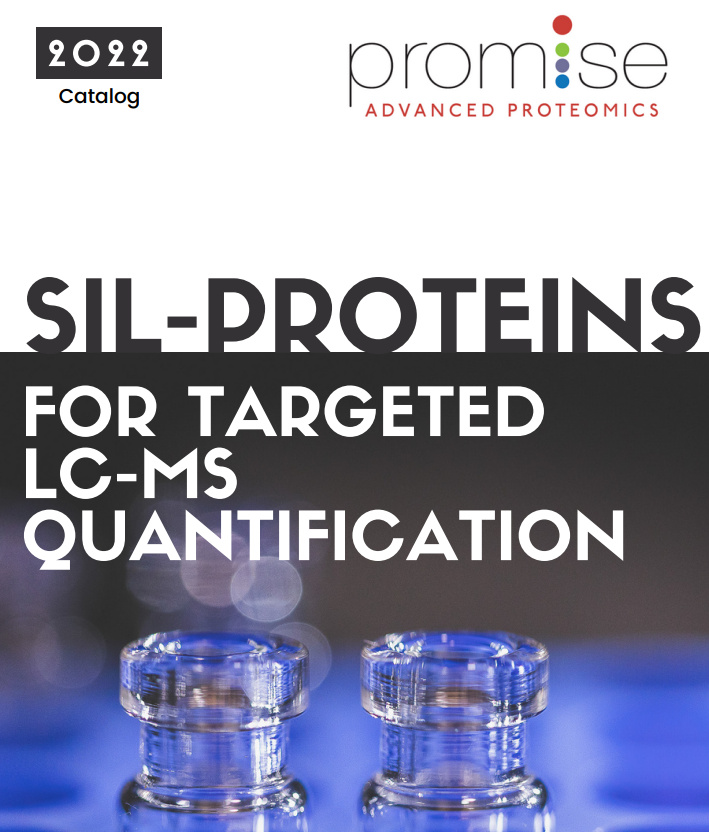
Promise Proteomics is a pioneer and expert in mass spectrometry-based quantification methods development and in bioproduction of
Stable Isotope Labelled (SIL) proteins.
Our SIL-proteins are the gold standard for
quantitative LC-MS.
SIL-Proteins correct bias occuring during
the preparation and analytical workflow
and due to losses, incomplete digestion,
adsorption, proteolysis… With SIL-Proteins,
the accuracy and reproducibility of your
quantification data is improved.
SIL proteins are useful in
SIL proteins are useful in
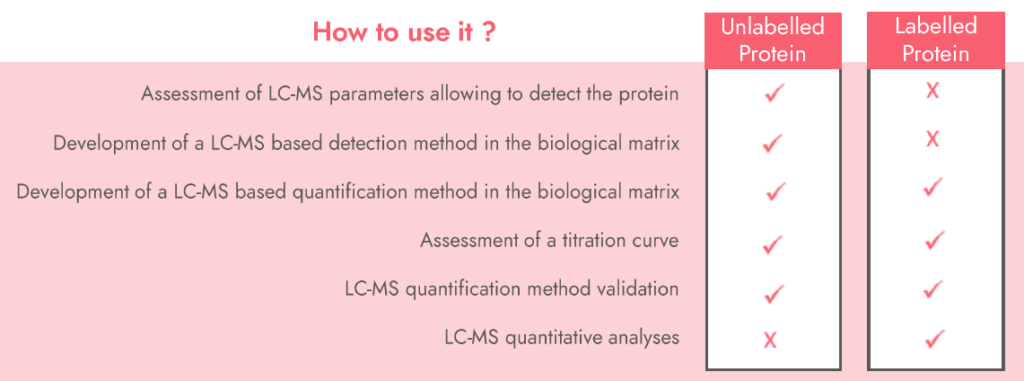

Stable Isotope-Labelled Proteins, SIL´s from Promise Proteomics are full-length proteins with high high isotopic incorporation and stability. Unlike peptide-based standartds, full-length SIL´s from Promise Proteomics will mimic your sample target throughout the whole workflow, from sample preparation to LC-MS analysis.
SIL´s are available as catalogue items and custom design.
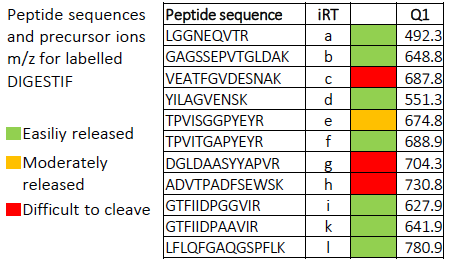

Quality Control of All Steps from Sample Preparation to LC-MS Analysis
Select optimal digestion efficiency conditions
Monitor digestion efficiency across multiple experiments
Evaluate protein loss during sample preparation
Check LC-MS performance; system stability and reproducibility
Improve quantification and RT prediction of target peptides
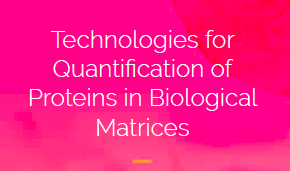

New Internal Standards for Oncology and Neuroscience
The stable isotope labelled (SIL) proteins from Promise Proteomics are full length proteins that allow control for variation of the whole process, from protein isolation, to digestion, LC and mass spectrometric ionisation.
RAS proteins for oncology research:
KRAS G12C/C118A mutant – unlabelled
KRAS 2A – labelled U15N
KRAS 2A – unlabelled
KRAS 2B – unlabelled
NRAS – labelled U15N
NRAS – unlabelled
Neurodegenerative disease:
Tau 352 – Labelled U15N
Synuclein beta – labelled U15N
Synuclein gamma – labelled U15N


New MagReSyn Ti-IMAC HP and Zr-IMAC HP Magnetic Microparticles
The popular metal chelated magnetic microparticles from ReSyn Biosciences have been further developed.
The new High Performance (HP) version of our popular titanium IMAC for phosphopeptide enrichment, was externally validated by the Olsen Lab, and the use first published in Nature Communications, by Dorte B Bekker Jensen et al., 2020. The product offers potentially increased recovery and sample coverage, with application to low-quantity peptide input.
The new High Performance (HP) version of our zirconium IMAC was externally validated by SUMS (Stanford University Mass Spectrometry – click here). The product offers potentially increased recovery and coverage, with application for low-quantity peptide samples. Zirconium IMAC is more stable than titanium IMAC for long term storage, making it suitable for extended studies.
Each batch of product for phosphopeptide enrichment is validated for the application using our stringent mass spectrometry based QC procedures to ensure maximum reproducibility.
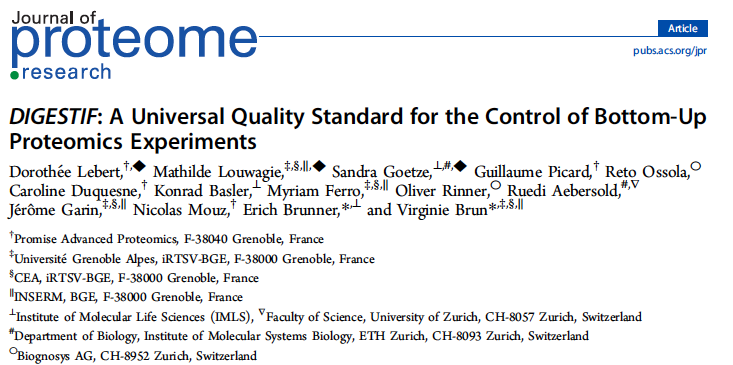

Digestif Universal Standard
Sample preparation: Assess and optimise quality and reproducibility for a robust enzymatic cleavage.
Control of LC-MS performance: Check system stability and reproducibility between runs.
Improved quantification using iRT peptides: Digestif offers 11 artifical iRT peptides that enable accurate RT prediction of target peptides.

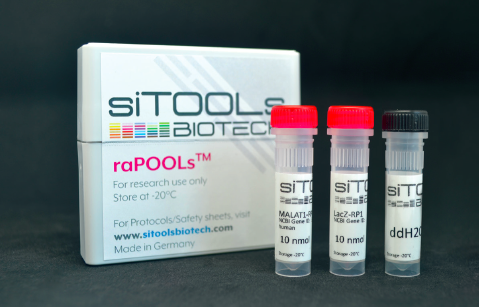
raPOOLs for Affinity Purification of SARS-CoV-2 Transcripts
raPOOLs are highly complex pools of biotinylated DNA probes, now designed also for capturing SARS-CoV-2 transcripts at high specificity. Thanks to the degree of complexity, the raPOOLs are great for efficient enrichment and isolation, to study proteins and nucleic acids that bind to the SARS-CoV-2 transcript.
Benefits:
Efficient and specific enrichment
Straight-forward protocol using Streptavidin bead-based capture
Low risk of contaminants – HPLC-purified
Available in the following formats: 2 nmol (20 rxn), 5 nmol (50 rxn), 10 nmol (100 rxn)
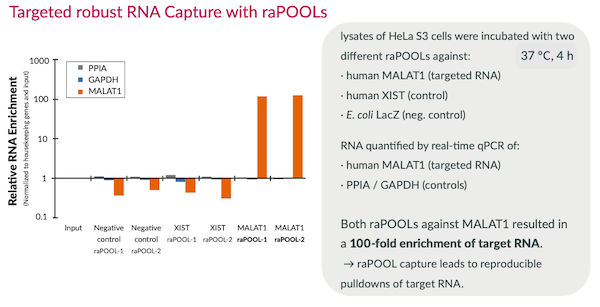

RNA Antisense Pools, raPOOLs for 100-fold Enrichment in the Study of lncRNA Interactions
Applications:
Isolation of lncRNA or mRNA from cell lysates
Co-isolation for interaction studies of proteins or nucleic acids
raPOOLs are complex, optimally designed pools of single-stranded, biotinylated DNA probes that efficiently bind to target of interest at high specificity. They can be be designed for any target RNA of interest.
Publication:
raPOOLs have shown robust RNA enrichment and were published to successfully isolate known and novel lncRNA-interacting proteins
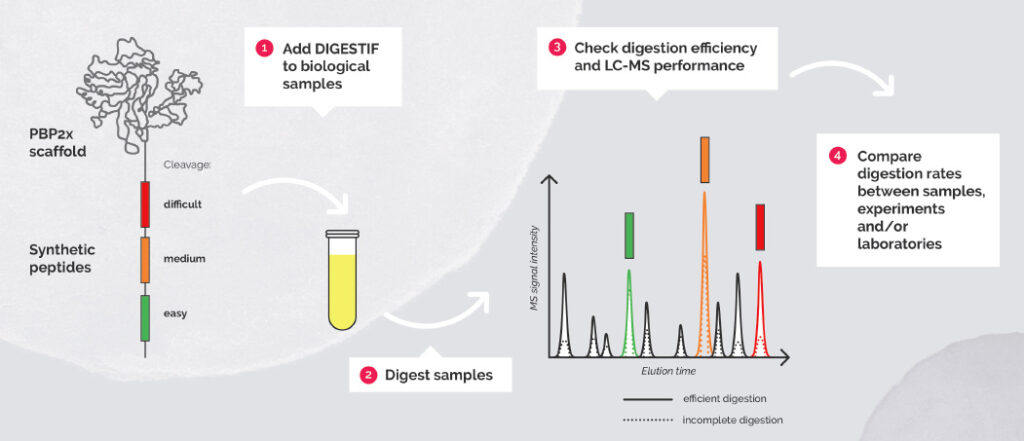

Universal Quality Standards
Digestif comprises a soluble recombinant protein scaffold + 11 artificial peptides (iRT) with good ionization.
Amino acids flanking iRT cleavage site either favour or hinder protease cleavage.
Retention time & relative intensity pattern of released iRT can assess the quality of sample workup, the extent of digestion, LC-MS performance & inter/intra-lab variability
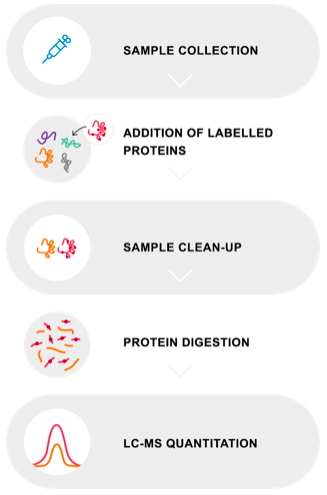

Low Abundant Protein Quantification in Complex Matrices
The Promise Proteomics SIL proteins are of high purity and >99% isotopic incorporation. You get an internal standard with the same sequence as your target protein of interest, thus normalising for variation in sample digestion and purification processes.
Get a free poster presenting the LC-MS workflow for quantification of Tau protein (microtubule-associated protein) as a sensitive biomarker for Alzheimer Disease. Get poster here!
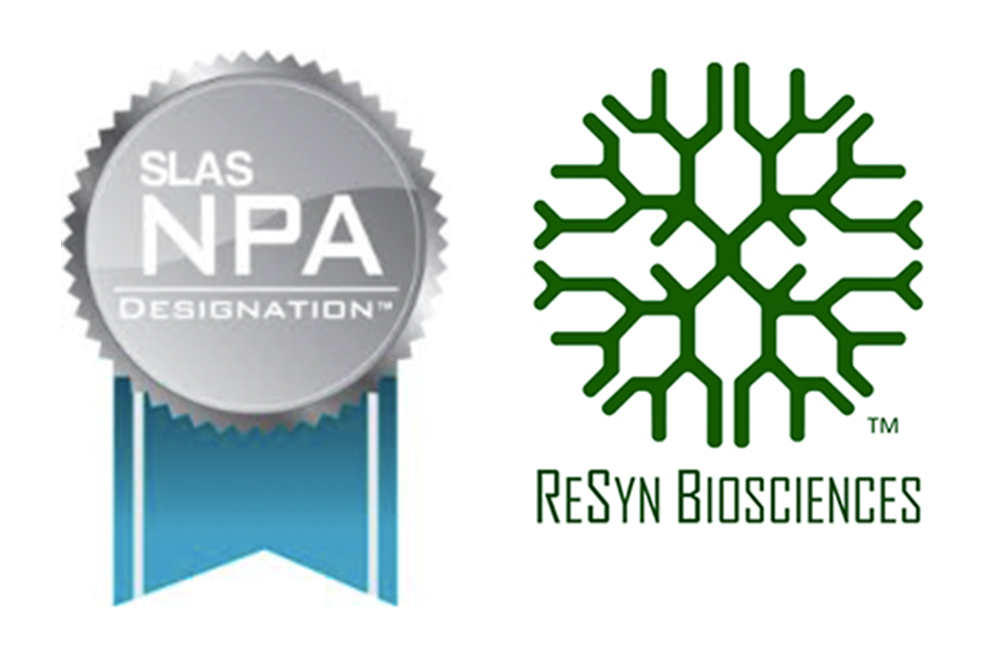

Optimise conditions based on the affinity to different chelating metal ions:
Ni2+, Cu2+, Co2+ or Zn2+
The MagReSyn® NTA Screening Kit enables testing of all four alternatives
The MagReSyn® microparticles consist of nitrilotriacetic acid (NTA) residues with a strong metal-chelating property. MagReSyn® NTA is pre-chelated with nickel ions for affinity purification of histidine-tagged proteins. The product has been engineered for exceptional specificity, delivering highly pure target proteins. Since different types of His-tagged proteins may have varying affinities for a particular metal ion, we also offer a His-tagged protein purification screening kit (MagReSyn® NTA-KIT) containing MagReSyn® NTA chelated with 4 alternate divalent metal ions (Ni2+, Cu2+, Co2+, Zn2+) to identify the most suitable metal ion for optimal purification of your particular target protein. MagReSyn® NTA Copper, -Cobalt and -Zinc are currently available in 2.

MagReSyn offers high capacity and strong magnetic moment improves the speed of your scientific protocols.
High density functional groups in a hyper-porous polymer matrix enables a maximised binding capacity. The awarded technology also helps to reduce time thanks to the great magnetic features.
Ligands include NTA, TiO2, ZrO2, Streptavidin, Protein A/G, Amine, Carboxyl, Trypsin and Chymotrypsin.
Get the brochure here: ReSyn Bio LabLife Brochure
Free samples and application notes are available on request:
We will support beyond today’s challenges, into future achievements!
Menu bar
Contact information
Follow us